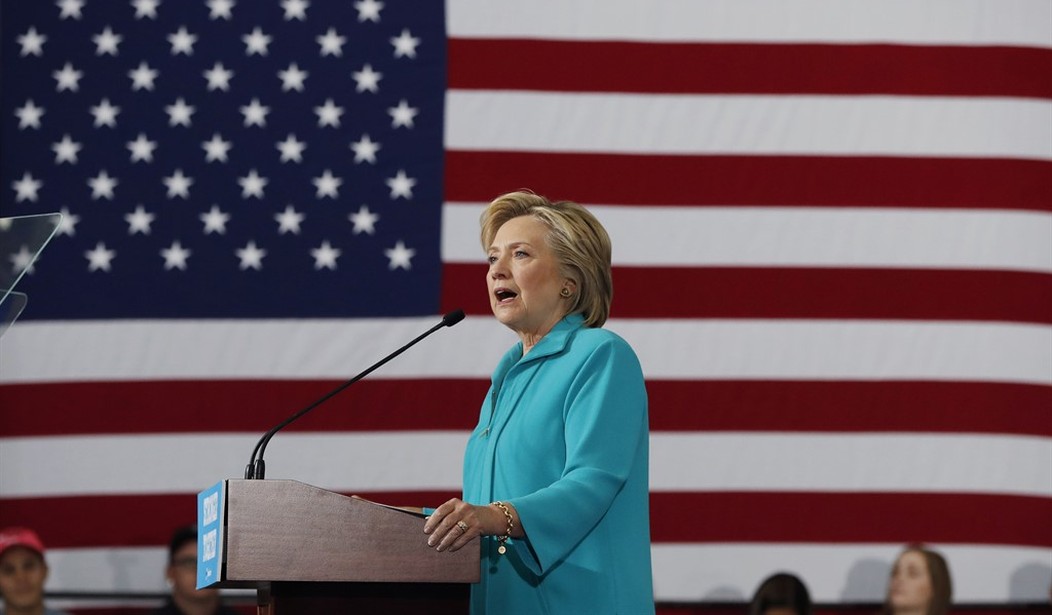The election season is heating up. Donald Trump has pulled back even with Hillary Clinton, and every new economic number is being scrutinized for its supposed political meaning.
The unexpectedly soft U.S. Bureau of Labor Statistics August job report will lend a little political advantage to Trump. In general, jobs came in 30,000 to 40,000 below expectations. Manufacturing and goods-producing jobs decreased, wages were nearly flat and retreated to 2.4 percent year on year, the private and manufacturing workweeks fell, and overall hours dropped.
However, this is far from a catastrophe. Jobs still climbed by 150,000 or so. And the third-quarter ending in September will probably generate a near-3 percent growth as inventories reverse course and start rising again. These numbers may well lend some political advantage to Clinton.
But if you look under the economy's hood, you'll discover a business recession that has been going on for quite a while. Profits, productivity, business investment and Institute for Supply Management manufacturing are all down. According to Chapman University Professor Dr. Mark Skousen, business-to-business supply-chain activity -- which hardly anyone looks at -- has been hurting for well over a year. And bank loans are in a slump.
If these trends continue, jobs and wages will continue to slip.
So, what's to be done?
Well, if you have a business recession, which could easily spread to consumers, the policy fix has nothing to do with whether or not the Fed raises its target rate by a quarter point. Nothing.
Instead, the trick is to help business with new incentives. And that's why I have been for Trump's tax-reform plan since last winter.
Trump aims to slash business tax rates to 15 percent for large and small firms, allow for immediate write-offs for new investment and enact a sensible repatriation plan to bring a couple trillion dollars in cash back to America.
Recommended
He also wants to lighten regulatory overload -- in particular getting rid of Obamacare -- and loosen bank credit for Main Street.
If he is able to put all this together, it would be the single biggest stimulant for middle-income wage earners in a very long time.
Want to raise wages? Slash business taxes. Want to help business get out of recession and into recovery? Then help business.
For the life of me, I cannot understand Clinton and her proposed across-the-board tax hikes on individuals, businesses and investors. I cannot fathom her plans for increased regulatory burdens, which include more government-run healthcare and a halt to the fossil-fuel energy boom.
I don't want to be partisan here. But please, tell me how you get out of a business recession by raising business taxes and regulations?
It may be coming, but so far Clinton has no corporate-tax reform plan. Even Barack Obama would have taken the business tax rate down to 28 percent. But Clinton has nothing.
And she has forgotten the economic lesson of the greatest Democratic politician of the last 50 years, John F. Kennedy.
JFK inherited three recessions from the Dwight D. Eisenhower years. And he wound up slashing tax rates across the board, for upper, middle and lower incomes as well as corporate investment. That's Kennedy the Democrat.
And when Republican Ronald Reagan faced stagflation in the 1980s, he went back in time and borrowed JFK's supply-side tax-cut program. And it worked for 20 years, throwing off 4-to-5 percent economies.
As a free-market guy, I love competition. That includes political competition. And what we need to get this economy out of its rut is a little tax-and-regulatory-cut competition between the two political parties.
The Democrats may be too hopelessly left to compete on this front. Today's liberals ignore the economic lessons of the JFK presidency. But Republicans, along with Trump, have studied the JFK-Reagan supply-side solution to boost economic growth. Alas, it's a one-sided competition.
As we come to the election homestretch, the issue is not going to be one month's jobs report, one quarter's gross domestic product number or one rate hike from the Fed. The No. 1 factor in this presidential campaign is who has the vision and strategy to lift up the wage-earning middle class, move America back onto the path to prosperity and get this country in a good and optimistic mood once again.
I don't agree with Trump on everything. But his tax cuts and regulatory rollbacks will boost jobs, wages and the economy. He has the right economic message. And if he hammers away, day in and day out, repeating the basics of this message, he will win.
As Ronald Reagan taught us, repetition is the key to messaging.

























Join the conversation as a VIP Member